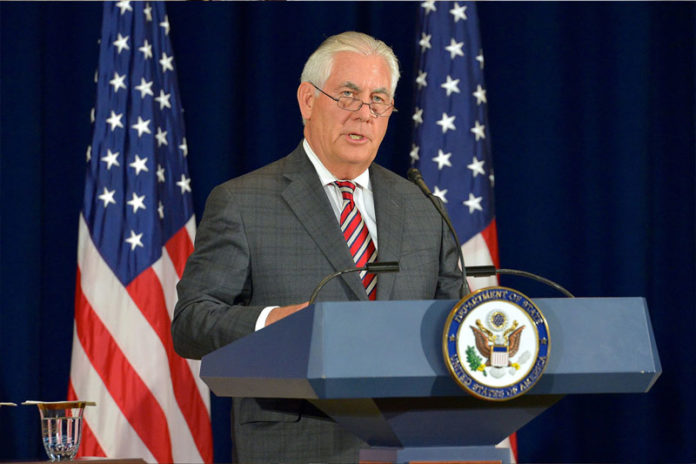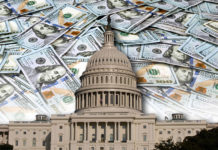
According to revelations from former and current officials of the two political parties, President Donald Trump is looking to drastically alter the State Department in a way that has never been seen before.
The recent moves by his administration, including potential budget cuts of around 30 percent, a freeze on all hiring and a reshuffle of positions within the State Department, have left numerous positions vacant, which in turn, has severely demoralized the remaining staff.
Previous Republican administrations have also attempted to reduce the size of the department and current staffers have admitted to facing bureaucratic issues as well.
However, what President Trump is trying to do with the State Department is being described by former officials as something unprecedented. Many have gone on to call it Trump’s war on the department which may eventually leave it handicapped.
“My suspicion is that within the White House, particularly amongst the nationalist faction … that this seems to actually be a concerted effort to diminish the role of the State Department in U.S. foreign policy and hamper its abilities to pursue policies that would be considered overly globalist,” said Stewart Patrick, who worked in policy planning at the department during George W. Bush tenure.
“They also don’t see much use, frankly, in diplomacy,” he said. Patrick currently serves as a senior fellow at the Council on Foreign Relations.
While keeping in mind the promises made on the campaign trail, Trump’s “America First” policy abroad and at home seems to be playing a major role behind the unprecedented moves being take with regards to the State Department.
“The President was elected to shake up Washington, not continue business as usual,” a White House official said. “He’s promised to spend more at home and less abroad and his budget reflects that.”
But the White House has also rejected the notion that the administration sees no use in diplomacy.
“The President has used diplomacy with China to bring unprecedented pressure on North Korea and its nuclear program. The President has used diplomacy to get NATO members to contribute more to defense,” the official said. “The idea that diplomacy has taken a backseat just does not square with reality.”
A part of the Trump administration’s attempt to reorganize the department is the March 13 executive order issued to review branches and agencies across the State Department. The review could result in a major reshuffle of the current posts and also the elimination of multiple offices and agencies.
According to a CNN report, the White House is also contemplating over a proposal that would transfer the bureaus of Consular Affairs and Population, Refugees, and Migration from the State to the Department of Homeland Security.
Sources have also said that there is a chance that the State Department and the US Agency for International Development (USAID) may be merged into a single department. The USAID currently operates as an independent agency that the secretary of state advises.
President Trump’s proposed budget cuts for the State Department include sharp cuts to foreign aid, and this does not seem to be going down too well with lawmakers.
“My one sense is that the knives are out for USAID in the White House,” according to Gordon Adams, who previously served as a senior official for foreign policy and national security budgets under Bill Clinton.
Similarly, Stewart Patrick believes that the White House is now of the view that a “lot of development and foreign assistance is basically pouring money down a rat hole.”
State Department officials who have served in previous administrations are of the opinion that agency operations should be reviewed to curb spending, however, steep cuts could have a negative impact on the progress made on global education and health made in the past decade or so.
“We have never before seen a third of their budget potentially being eliminated,” said Anita McBride, who worked in the Bush and Reagan administrations. “If we pull back too much and it affects the good work on the ground, those countries will see it as a reason to not invest as much as they should.”
While the proposed 30 percent cut is unlikely to pass the Congress taken into consideration the objections voiced by a few Republicans too. But Adams believes even half of the proposed cuts could have repercussions.





























